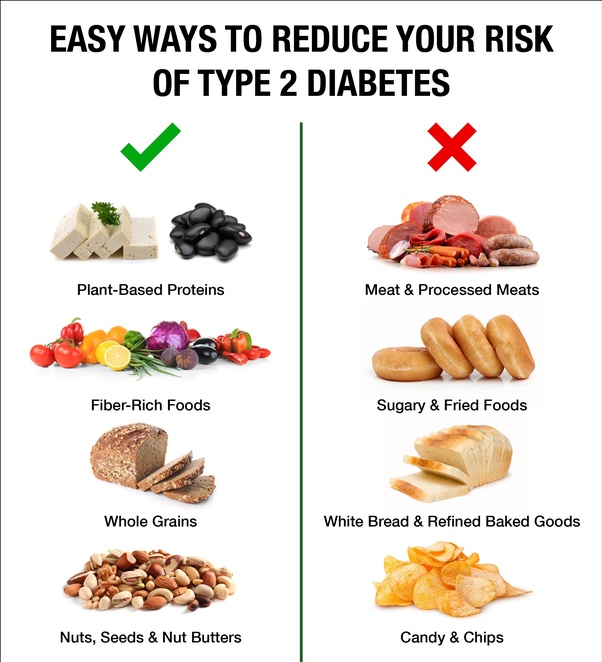Low Carb Diet: Complete Guide in 2025 [Latest and Updated]
In a world increasingly aware of metabolic health, the low carb diet remains one of the most sustainable and effective nutrition strategies for weight loss, blood sugar control, and improved energy. As we step into 2025, the principles of low carb eating have evolved, refined by scientific research and real-world results. Whether you’re new to this lifestyle or revisiting it with fresh goals, this low carb diet: complete guide in 2025 will walk you through everything you need to know—what to eat, what to avoid, how it works, and how to stay consistent.
The low carb diet is not a fad. It has stood the test of time, adapting with modern nutritional science. By minimizing carbohydrate intake and prioritizing proteins, healthy fats, and nutrient-rich vegetables, the low carb approach helps you tap into fat-burning mode, stabilize blood sugar levels, reduce cravings, and support overall well-being.
What Is a Low Carb Diet?
A low carb diet limits the intake of carbohydrates—primarily found in sugary foods, bread, pasta, and processed snacks—and emphasizes foods high in protein and fat. While there are various forms of low carb diets, including ketogenic (very low carb), moderate low carb, and cyclical approaches, they all share the same fundamental goal: to reduce glucose spikes and rely more on fat for fuel.
Carbohydrates typically provide the body’s primary energy source. However, in a low carb diet, reducing carbs forces the body to utilize fat as its main energy source, often resulting in weight loss, improved insulin sensitivity, and reduced inflammation.
Benefits of the Low Carb Diet in 2025
The benefits of following a low carb diet in 2025 extend beyond simple weight loss. Research from the past decade continues to validate the advantages of carbohydrate restriction for a variety of health conditions.
- Promotes rapid fat loss, especially in abdominal and visceral fat
- Stabilizes blood sugar levels and reduces insulin spikes
- Enhances energy, mental clarity, and focus throughout the day
- Reduces cravings and binge eating by regulating appetite hormones
- Improves heart health markers like triglycerides and HDL cholesterol
- May lower risk or severity of type 2 diabetes and metabolic syndrome
- Can reduce inflammation and improve gut health
Many people in 2025 are also using low carb diets to improve long-term cognitive function, reduce symptoms of PCOS, and support hormonal balance.
Different Types of Low Carb Diets
Low carb is a flexible framework, and its implementation can vary depending on your goals, health status, and preferences. The most common types include:
Standard Low Carb Diet
- 50–100 grams of net carbs per day
- Focus on whole foods, lean proteins, vegetables, and healthy fats
- Ideal for general weight loss and blood sugar management
Ketogenic Diet (Keto)
- 20–50 grams of net carbs per day
- High fat (70–75%), moderate protein (20%), low carb (5–10%)
- Promotes ketosis, where the body produces ketones as fuel
Moderate Low Carb Diet
- 100–150 grams of net carbs per day
- Allows more fruits, legumes, and whole grains
- Good for athletes, active individuals, or maintenance mode
Targeted or Cyclical Low Carb
- Low carb most days with periodic higher-carb days (carb cycling)
- Beneficial for athletes, bodybuilders, and advanced users
What to Eat on a Low Carb Diet in 2025
Understanding what foods align with a low carb diet helps you stay on track and nourished. In 2025, low carb foods are more accessible than ever with plenty of clean-label, minimally processed options available globally.
Proteins
- Eggs (pasture-raised or omega-3 enriched)
- Chicken, turkey, duck
- Grass-fed beef and lamb
- Seafood: salmon, sardines, tuna, mackerel
- Pork, including bacon (check for sugar-free)
- Tofu, tempeh, and plant-based low-carb proteins
Healthy Fats
- Avocados and avocado oil
- Extra virgin olive oil
- Coconut oil and MCT oil
- Nuts and seeds (almonds, walnuts, chia, flaxseed)
- Ghee, grass-fed butter
Low Carb Vegetables
- Leafy greens: spinach, kale, romaine
- Cruciferous veggies: broccoli, cauliflower, cabbage
- Zucchini, bell peppers, asparagus, mushrooms
- Cucumbers, celery, green beans
Dairy (Full-Fat, Low Lactose)
- Hard cheeses (cheddar, parmesan)
- Greek yogurt (unsweetened)
- Heavy cream
- Cottage cheese (low in carbs)
Beverages
- Water (plain, mineral, or infused)
- Herbal teas
- Black coffee
- Bone broth
- Electrolyte drinks (zero sugar)
What to Avoid on a Low Carb Diet
To fully experience the benefits, it’s important to minimize or eliminate high-carb, processed, and sugar-rich foods.
- Bread, pasta, rice, tortillas
- Baked goods, cakes, cookies
- Fruit juices and sugary drinks
- Breakfast cereals, granola
- Potatoes, corn, peas
- Most fruits (limit bananas, grapes, mangoes)
- Beer and sugary alcoholic beverages
- Sweetened yogurts and dairy products
- Sauces and condiments with added sugar
Sample Low Carb Meal Plan (One Day)
Breakfast
- Spinach and feta omelet cooked in olive oil
- Side of avocado slices
- Black coffee
Lunch
- Grilled salmon over mixed greens
- Olive oil vinaigrette dressing
- Handful of walnuts
Snack
- Celery sticks with almond butter
Dinner
- Roasted chicken thighs
- Cauliflower mash
- Steamed asparagus with butter
Dessert (Optional)
- 2 squares of 85% dark chocolate or chia pudding
This meal plan totals less than 50–60 grams of net carbs and supports fat-burning and blood sugar balance.
Low Carb Diet for Weight Loss
One of the most popular reasons people adopt a low carb diet is to lose weight—and it works. Reducing carbohydrates lowers insulin levels, which promotes fat loss, especially in the abdominal area. By emphasizing whole foods and eliminating processed sugar and starch, calorie intake naturally reduces without hunger.
Studies show that people on low carb diets lose more weight over six months than those on low fat diets. In 2025, more individuals are combining low carb with intermittent fasting for enhanced metabolic effects.
Low Carb Diet for Diabetes and Blood Sugar
The low carb diet is increasingly used in medical nutrition therapy for type 2 diabetes. Reducing carbohydrate intake improves insulin sensitivity, lowers HbA1c levels, and in many cases, reduces or eliminates the need for medication.
New 2025 clinical guidelines from global health bodies now support low carbohydrate approaches as safe and effective strategies for managing blood glucose, especially in early-stage type 2 diabetes and insulin resistance.
Exercise and the Low Carb Diet
Contrary to old myths, a low carb diet can support athletic performance, especially in endurance sports. As your body adapts to fat for fuel (a process called fat adaptation), it becomes more efficient at using stored energy.
Many athletes in 2025 follow targeted or cyclical low carb diets to fuel performance while maintaining lean mass and metabolic flexibility. Strength training, walking, yoga, and HIIT are excellent complements to low carb eating.
Common Mistakes to Avoid on a Low Carb Diet
Starting a low carb diet is simple, but common pitfalls can stall progress:
- Not eating enough healthy fats
- Eating too much protein and not enough fiber
- Ignoring hydration and electrolytes (leads to keto flu)
- Consuming too many “low carb” packaged snacks
- Forgetting to read labels—many products hide sugar and carbs
- Going too low on carbs too fast without planning meals
Being mindful of these can ensure smoother adaptation and better long-term results.
Tracking Macros on a Low Carb Diet
In 2025, tracking macros is easier than ever thanks to apps that sync with smart watches and glucose monitors. Use these to understand your daily intake:
- Carbohydrates: Net carbs (total carbs – fiber)
- Protein: 0.6–1.0g per pound of lean body mass
- Fat: Adjust to meet calorie needs and stay full
While not mandatory, tracking can help fine-tune your approach and identify areas to improve.
Is the Low Carb Diet Safe?
For most healthy adults, a low carb diet is safe and beneficial. People with kidney disease, certain metabolic disorders, or those on medications for diabetes or blood pressure should consult a healthcare provider before making significant dietary changes.
In 2025, many healthcare professionals are trained in low carb and ketogenic therapy and can help personalize plans to fit individual needs.
Final Thoughts
This low carb diet: complete guide in 2025 [latest and updated] proves that reducing carbohydrate intake is more than a weight loss trend—it’s a powerful nutritional tool to improve health, longevity, and daily energy. With flexible options, real food choices, and scientific backing, the low carb lifestyle continues to empower people worldwide to take control of their health.
The keys to success are consistency, quality food choices, and adjusting your plan as needed based on your goals. With this guide, you have the knowledge to begin or optimize your low carb journey in 2025 and beyond.
FAQs
1. How many carbs should I eat on a low carb diet?
Depending on your goals, anywhere from 20 to 150 grams of net carbs per day qualifies as low carb. Most people aim for 50–100g daily for sustainable weight loss and energy.
2. Can I eat fruits on a low carb diet?
Yes, but stick to low sugar fruits like berries, avocado, and tomatoes. Avoid high-sugar fruits like bananas, grapes, and mangoes.
3. Is keto the same as low carb?
Keto is a stricter form of low carb, usually under 50g of net carbs per day, with a higher fat intake to induce ketosis. All keto diets are low carb, but not all low carb diets are keto.
4. Will I feel tired when starting a low carb diet?
Some people experience “low carb flu” for a few days as the body adjusts. Staying hydrated and adding electrolytes can help reduce symptoms.
5. Can I drink alcohol on a low carb diet?
Dry wines and spirits like vodka, gin, and whiskey are low in carbs. Avoid sugary mixers and beer.
6. Is the low carb diet safe for diabetics?
Yes, under medical supervision. Many people with type 2 diabetes experience better glucose control and can reduce their medication on a low carb diet.
7. What are net carbs?
Net carbs are total carbohydrates minus fiber and sugar alcohols. This is the number that impacts your blood sugar.
8. Do I need to count calories on a low carb diet?
Not necessarily. Low carb diets tend to be naturally satiating. However, tracking calories can help if weight loss stalls.
9. What snacks can I have on a low carb diet?
Boiled eggs, cheese, nuts, jerky (no sugar), Greek yogurt, and low carb bars are great snack options.
10. Can vegetarians follow a low carb diet?
Yes, with options like tofu, tempeh, eggs, nuts, seeds, low carb vegetables, and dairy, vegetarians can effectively follow a low carb lifestyle.






